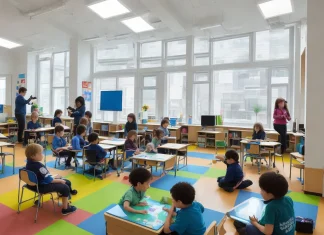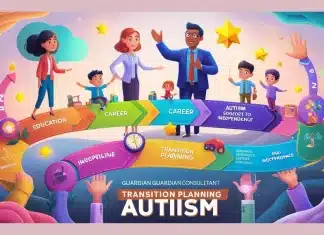Introduction
Supporting children with autism is crucial for their overall development and well-being. Specialized support plays a significant role in addressing the unique needs and challenges faced by these children. In this article, we will explore the importance of specialized support, various therapeutic interventions, the role of individualized education programs, and other strategies that can help children with autism thrive.
Understanding Autism
Autism, or autism spectrum disorder (ASD), is a neurodevelopmental condition that affects individuals’ social interaction, communication skills, and behavior. Children with autism often experience difficulties in understanding and responding to social cues, maintaining eye contact, and developing meaningful relationships. They may also exhibit repetitive behaviors and have specific interests.
Early Identification and Diagnosis
Early identification and diagnosis of autism are crucial for providing timely support and interventions. Parents, caregivers, and healthcare professionals play a vital role in recognizing early signs such as delayed speech, lack of social engagement, and repetitive behaviors. Seeking professional evaluation and diagnosis enables early intervention and improves long-term outcomes.
The Role of Specialized Support

Specialized support provides tailored interventions and strategies to address the specific challenges faced by children with autism. It encompasses a multidisciplinary approach involving therapists, educators, and other professionals who work collaboratively to support the child’s development across various domains.
Therapies and Interventions
A range of therapies and interventions have shown positive outcomes in supporting children with autism. Applied Behavior Analysis (ABA), Speech-Language Therapy, Occupational Therapy, and Social Skills Training are some of the commonly used approaches. These interventions aim to improve communication skills, promote social interaction, and reduce challenging behaviors.
Individualized Education Programs (IEPs)
Individualized Education Programs (IEPs) are essential for children with autism. These personalized plans outline specific educational goals, accommodations, and support services tailored to the child’s unique needs. IEPs promote a structured learning environment and foster academic, social, and emotional growth.
Communication and Social Skills Development
Supporting communication and social skills development is a key aspect of specialized support for children with autism. Speech and language therapy help improve language comprehension and expressive communication. Social skills training focuses on enhancing social interactions, understanding emotions, and developing meaningful relationships.
Sensory Integration and Behavior Management
Many children with autism have sensory sensitivities and may become overwhelmed by certain sounds, textures, or lights. Sensory integration techniques aim to help them regulate their sensory experiences, promoting calmness and reducing anxiety. Effective behavior management strategies, such as positive reinforcement and visual schedules, provide structure and predictability.
Assistive Technology
Assistive technology can significantly benefit children with autism. Tools such as augmentative and alternative communication devices, visual schedules, and educational apps help enhance communication, support learning, and promote independence. The use of technology can empower children with autism to effectively navigate their daily lives.
Inclusion and Community Support

Inclusion in mainstream settings and community support are crucial for the holistic development of children with autism. Inclusive classrooms provide opportunities for social interaction and peer learning. Community programs and support groups offer a network of understanding and acceptance, fostering a sense of belonging for both children and their families.
Parental Involvement and Advocacy
Parents play an integral role in supporting children with autism. Active involvement in their child’s therapy, education, and daily routines can have a profound impact on their progress. Additionally, advocating for their child’s rights and accessing available resources helps create a supportive environment that nurtures the child’s growth and development.
Transition to Adulthood
The transition from adolescence to adulthood can be challenging for individuals with autism. Specialized support during this period focuses on life skills training, vocational programs, and community integration. Creating a comprehensive transition plan that addresses employment, independent living, and ongoing support services is crucial for successful outcomes.
Future Directions and Research
Research in the field of autism continues to advance our understanding and approaches to specialized support. Ongoing studies explore new therapeutic interventions, innovative technologies, and strategies to enhance the quality of life for individuals with autism. The future holds promise for further improving support systems and achieving better outcomes.
Conclusion
Specialized support for children with autism plays a pivotal role in improving the lives of children with autism. By providing tailored interventions, therapies, and educational programs, we can empower these children to reach their full potential. With continued research and a collective commitment to inclusion and support, we can create a society that embraces and celebrates the unique abilities of individuals with autism.
FAQs
How early can autism be detected? Early signs of autism can often be detected in children as young as 18 months. It is important to seek professional evaluation if there are concerns about a child’s development.
What is Applied Behavior Analysis (ABA)? Applied Behavior Analysis (ABA) is a therapeutic approach that focuses on understanding and modifying behavior patterns. It is widely used in supporting children with autism.
Are there any alternative therapies for children with autism? While evidence-based therapies like ABA have shown significant benefits, alternative therapies like music therapy and animal-assisted therapy are also used to complement traditional interventions. It’s important to consult professionals and evaluate the effectiveness of any therapy.
How can schools support children with autism? Schools can support children with autism through individualized education programs (IEPs), providing trained staff, creating inclusive environments, and implementing effective behavior management strategies.
What resources are available for parents of children with autism? There are various resources available for parents, including support groups, online communities, informational websites, and parent training programs. These resources offer guidance, advice, and a network of support for parents navigating the challenges of raising a child with autism.



























